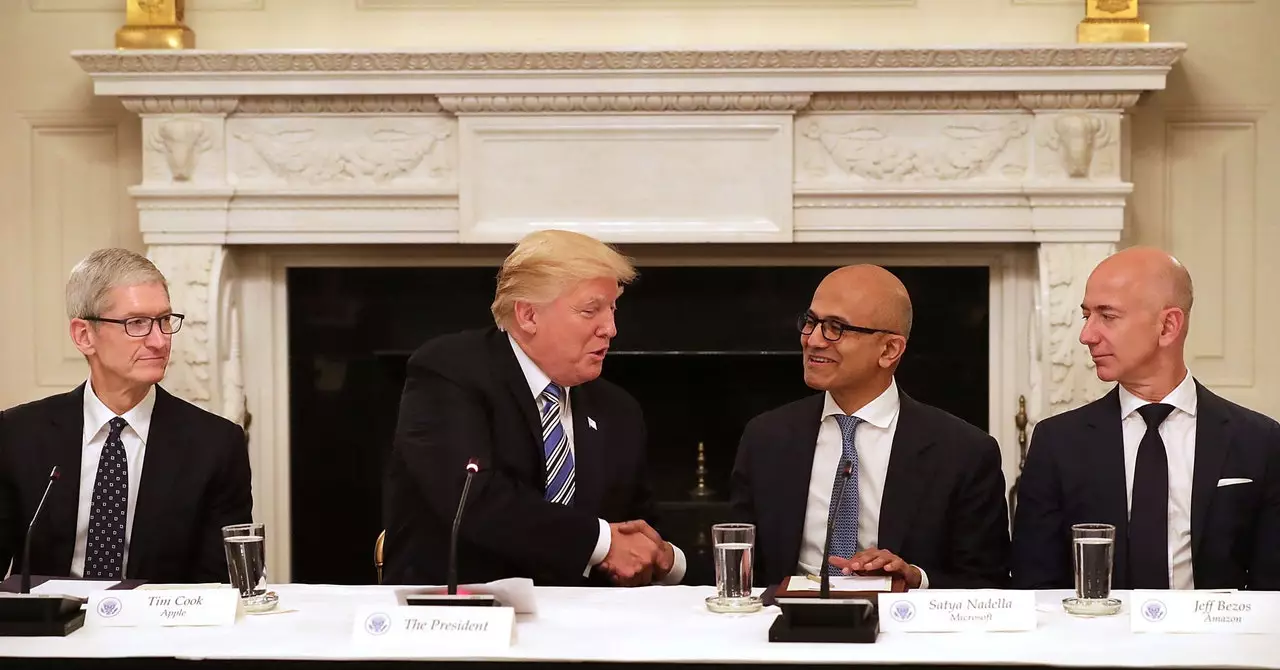The political arena surrounding technology regulation is charged with fervent promises and shifting allegiances, particularly with the looming prospect of Donald Trump returning to the White House. Central to this debate are the potential changes in policy direction that could stem from Trump’s positions, especially regarding key figures in the regulatory framework and their approaches to Big Tech. The implications of these changes could reverberate throughout the technology sector and impact the future of online businesses.
One of the loudest reactions from supporters during Trump’s recent rally came in response to his pledge to dismiss Gary Gensler, the current Chairman of the Securities and Exchange Commission (SEC). Gensler has made headlines for his aggressive stance supporting the regulation of cryptocurrency, leading to numerous lawsuits against crypto firms during the Biden administration. Trump’s promise to eliminate Gensler suggests a major shift for the crypto industry, which is seeking a more favorable regulatory environment. This promise illustrates a broader trend in Trump’s rhetoric: rallying support by targeting regulatory figures perceived negatively by certain sectors, notably those involved in emerging technology markets.
Moreover, Trump’s consideration to commute the sentence of Ross Ulbricht, the founder of the infamous Silk Road, reveals a significant stance on issues surrounding digital currency and criminal justice. Ulbricht’s life sentence has sparked extensive debate within the cryptocurrency community, many of whom see the punishment as excessive compared to the nature of his crimes. This act of mercy could galvanize his support among crypto enthusiasts, framing Trump as a champion of digital freedom in stark contrast to what they view as an overly punitive legal framework.
As the GOP gears up for a potential return to power, the future of Lina Khan, the young chair of the Federal Trade Commission (FTC), hangs in the balance. Appointed at just 35, Khan has taken a hardline approach against the overwhelming influence of corporate giants like Google, Meta, and Amazon. Her aggressive antitrust stance has fueled tensions, particularly with influential figures in the tech industry who argue that her policies stifle innovation and competitiveness. High-profile supporters of Trump, including Elon Musk, have made their opposition to Khan clear, labeling her tenure as detrimental to American enterprise.
The debate around Khan underscores a larger ideological divide concerning corporate regulation in the tech sphere. While Trump and his allies view Khan’s position as hostile to entrepreneurship, some, like Ohio’s Senator JD Vance, hold the belief that breaking up these corporations is necessary to counterbalance their perceived censorship and dominance over public discourse. Vance contends that an antitrust approach could alleviate the suppression of conservative voices, an argument that resonates with a significant faction of the Republican base.
A Potential Reversal in Big Tech Regulation
The prospect of Trump reinstating a leadership role brings with it questions about the future of ongoing antitrust cases against tech behemoths. Industry analysts speculate that while some antitrust actions initiated during Trump’s previous term might continue, the tone of these investigations could dramatically shift. Adam Kovacevich, the CEO of the Chamber of Progress, suggests that Trump could wield these cases as bargaining chips to negotiate more favorable treatment for issues related to free speech and content regulation. This strategic position indicates a potential turning point in how tech companies navigate regulatory scrutiny.
Despite the uncertainties surrounding who would succeed within such a regulatory environment, the paradigm appears geared towards facilitating a business ecosystem where tech firms operate with greater autonomy. This shift will likely instigate a ripple effect throughout the industry, prompting companies to recalibrate their legal strategies and operational protocols under the anticipation of a friendlier administration.
The evolving political landscape concerning tech regulation signals a critical juncture for American technology and finance. With Trump’s electoral promises aimed at dismantling key regulatory figures and frameworks, stakeholders are left parsing the ramifications these changes could have on both corporate governance and free speech in the digital age. As the political narrative continues to unfold, the size and impact of these shifts will play a significant role in shaping the future of the tech industry, compelling firms to adapt in response to this new reality. The stakes are high, and the coming months will likely determine not just the operational dynamics of Big Tech, but the broader ideological battle over technology in American life.

